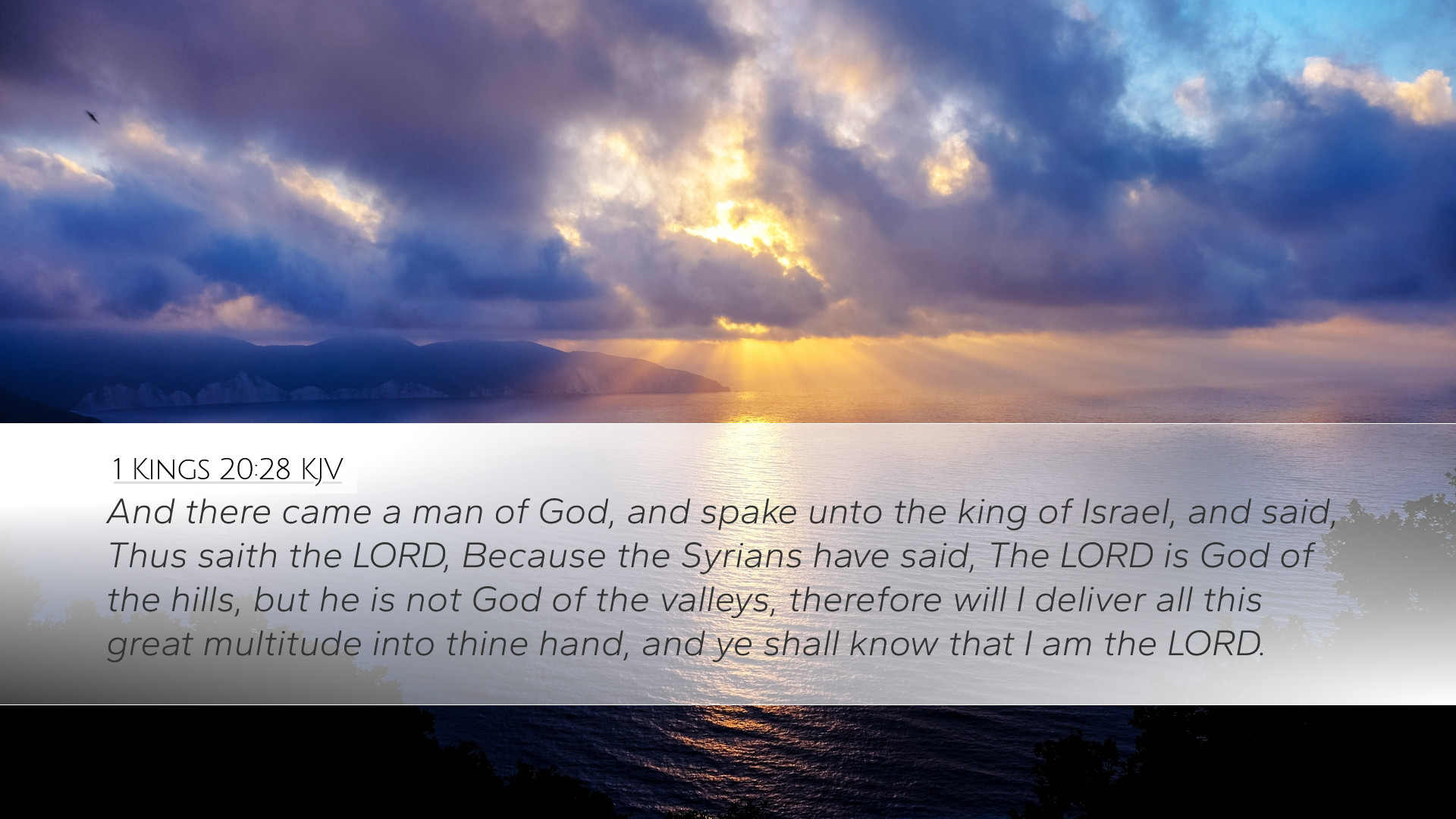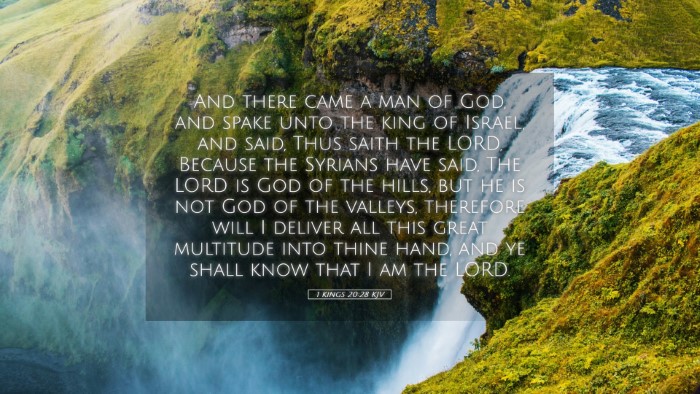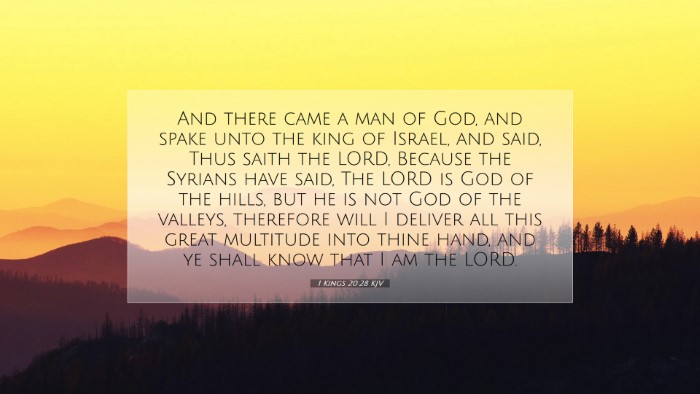Commentary on 1 Kings 20:28
Bible Verse: "And there came a man of God, and spake unto the king of Israel, and said, Thus saith the Lord, Because the Syrians have said, The Lord is God of the hills, but he is not God of the valleys; therefore will I deliver all this great multitude into thine hand, and ye shall know that I am the Lord."
Introduction
This verse serves as a pivotal point within the narrative of Israel's conflict with the Syrians. The communications of a prophet, in this case, demonstrate God's assurance and sovereignty through his directives. The theological implications reveal much about God's nature and His relationship with His people, explaining the significance of faith and divine providence.
Exegesis of the Verse
The declaration of the prophet that “Thus saith the Lord” signifies a direct communication from God to His people. Here, we see God's role as the ultimate authority, reminding both the Israelites and their adversaries that Divine sovereignty transcends geographical boundaries.
- The Context: This narrative takes place during a time of great conflict between Israel and Syria, led by King Ben-Hadad. The Syrians had already suffered an initial defeat, and in their arrogance, they attributed their misfortunes to the geographical attributes of the land, claiming that Yahweh could be only a god of the hills and not of the valleys.
- The Prophetic Role: The arrival of a man of God signals divine intervention. This emphasizes the significance of prophets throughout Israel’s history as mediators of God’s will and messages.
- God's Sovereignty: The text affirms the omnipotence of God, demonstrating that His ability to deliver does not hinge on location or circumstance. God declares victory to affirm the truth of His lordship over both the highlands and the lowlands.
Theological Implications
1. The Nature of God: This passage highlights a profound aspect of God’s character; He is not limited by human reasoning or the perceptions of His enemies. The Syrian belief that God could only be a God of the hills exposes the folly of limited understanding of the divine.
2. Assurance of Deliverance: The promise of victory to Israel was contingent upon their acknowledgment of God’s supremacy. This leads to a theological exploration of how faith in God positions His people to experience His power and deliverance.
Commentary Insights
Matthew Henry
Henry emphasizes that this event showcases God’s displeasure with the inadequate faith of His people. He points out that God's answer, encapsulated in the prophecy, serves to validate His supreme authority over all creation, symbolizing the contrast between the limitations of human understanding and the vastness of divine wisdom.
Albert Barnes
Barnes highlights the significance of the address from the prophet. He notes that the assertion about God’s sovereignty counters the arrogance and misjudgment of the Syrians, thereby teaching an essential lesson about humility before God. He also proposes that this act of deliverance was intended not only for Israel's benefit but as a declaration to the nations about the nature and power of the God of Israel.
Adam Clarke
Clarke brings attention to the historical significance of this prophecy as a tool for Israel’s reassurance during turmoil. He suggests that the notion that God could not operate in the valleys could be a metaphor for those who believe God is present only in spiritual 'highs' rather than in times of weakness and vulnerability. Clarke argues that God desires to engage with His people in all circumstances, including the depths.
Practical Applications
From this verse, there are several practical lessons for modern believers:
- God's Presence in All Circumstances: Just as God was present with Israel in their valleys, believers must remember that God is present in their low times, providing strength and guidance.
- Faith in God’s Sovereignty: In facing personal and communal challenges, believers should lean on the promise that God overcomes obstacles, reflecting on the need for reliance and trust in God's plan.
- A Call to Humility: The narrative serves as a reminder not to put God in a box according to human understanding but to recognize His supremacy in every aspect of life.
Conclusion
1 Kings 20:28 serves as a powerful reminder of God's undeniable sovereignty over human affairs and the earth's geography. The assurances of the prophet not only fortified Israel’s resolve but also set an example for contemporary faith communities about the omnipresence and omnipotence of God. This text calls believers to recognize and proclaim the truth that God reigns over every situation, encouraging them to embrace all aspects of life with faith in His outward presence and guidance.


